10 Tangy Alternatives: White Wine Vinegar Swaps For Your Pantry
White wine vinegar adds brightness and subtle fruity notes to dressings, sauces, and marinades, but it’s not always available.
Apple cider vinegar, lemon juice, or champagne vinegar are excellent options that provide similar acidity.
Each brings a distinct flavor that might shift your dish slightly, so tasting and adjusting is recommended.
These ten white wine vinegar substitutes are convenient and effective in a wide range of culinary uses.
Balancing acidity and sweetness maintains harmony in your recipes.
From vinaigrettes to pickles, these alternatives keep dishes crisp and lively.
Discover simple swaps to enhance your cooking with accessible vinegars.
What is White Wine Vinegar?
White wine vinegar is a tangy, slightly fruity vinegar made by fermenting white wine. It has a light, crisp flavor that’s less harsh than plain distilled vinegar, making it great for salad dressings, marinades, and light sauces.
The subtle acidity helps brighten dishes without overpowering other ingredients. It’s often used to add a gentle zip to everything from cooked greens to pan sauces.
Because it’s milder, it blends well in recipes where you want a clean, balanced sour note.
Ideal White Wine Vinegar Alternatives
White wine vinegar alternatives keep bright acidity and subtle fruitiness in dressings, sauces, and marinades. Various vinegars and citrus juices make excellent swaps. Plenty of options await your kitchen.
Champagne Vinegar
Champagne vinegar stands as the top substitute for white wine vinegar due to their similar appearance and aroma.
Their flavor profiles differ slightly, but most people won't notice the difference in everyday cooking.
For proper substitution, you should use a 1.5:1 ratio since Champagne vinegar has a lighter taste profile than its counterpart.
This replacement works wonderfully in most recipes that call for white wine vinegar without compromising flavor.
When making salad dressings with Champagne vinegar instead, you may need to adjust other liquid ingredients slightly to maintain the right consistency.
Simply replace each tablespoon of white wine vinegar with 1½ tablespoons of Champagne vinegar for best results.
Lemon Juice + White Wine
Lemon juice mixed with white wine creates an excellent substitute for white wine vinegar when you need an alternative in recipes.
This combination delivers the perfect balance of acidity from the lemon and complexity from the wine that plain lemon juice alone cannot provide.
Many cooks appreciate this simple swap because these ingredients are typically already in their kitchens, making it convenient when you've run out of white wine vinegar mid-recipe.
The ratio is straightforward - just combine equal parts lemon juice and white wine (½ tablespoon of each) to replace 1 tablespoon of white wine vinegar in any dish.
Regular white vinegar can work in a pinch, but the lemon-wine blend offers a more nuanced flavor profile that better mimics the original ingredient's character.
Sherry Vinegar
Sherry vinegar makes an excellent substitute for white wine vinegar in recipes because they share similar flavor profiles, though sherry is slightly lighter and sweeter.
The subtle fruity notes in sherry vinegar won't significantly alter your dish's overall taste, making it perfect for salad dressings, marinades, and sauces.
Swapping these vinegars requires no special measurements - simply use equal amounts (1 tablespoon of sherry vinegar for 1 tablespoon of white wine vinegar).
Many chefs actually prefer sherry vinegar for its more complex flavor that adds depth to foods without overpowering other ingredients.
You who make this substitution often discover they enjoy the mild sweetness that sherry vinegar brings to their favorite recipes.
Apple Cider Vinegar
Apple cider vinegar stands out as a common substitute for white wine vinegar primarily because most people already have it in their pantries.
This handy alternative offers a tarter, zestier flavor profile than white wine vinegar, sometimes adding subtle fruity notes to your cooking.
For best results, dishes with fresh, bright flavors like dressings and sauces benefit most from this swap.
Many people find it less suitable for marinades due to its distinctive taste.
The substitution couldn't be simpler - just use equal amounts, replacing one tablespoon of white wine vinegar with one tablespoon of apple cider vinegar in any recipe.
Rice Vinegar
Substituting rice vinegar for white wine vinegar offers home cooks a valuable option when preparing various dishes.
Many Asian cuisines regularly feature rice vinegar, which provides a milder sweetness and less acidity than its white wine counterpart.
You can easily swap these vinegars in equal amounts - one tablespoon of rice vinegar replaces one tablespoon of white wine vinegar in marinades, sauces, and salad dressings.
Regular rice vinegar works best for substitutions since seasoned varieties contain additional sugar and salt that might alter your recipe's flavor profile.
This simple exchange allows for flexibility in the kitchen when your pantry lacks certain ingredients, helping you complete recipes without an extra trip to the store.
Honey Vinegar
Honey vinegar stands out as a popular condiment in European countries like Italy and Spain, despite its relative obscurity in the United States.
Most Americans don't have this versatile ingredient in their pantries, but those who do can enjoy its remarkable similarity to white wine vinegar as a perfect one-to-one substitute.
The flavor profiles match closely enough for honey vinegar to work seamlessly in any recipe calling for white wine vinegar, though it falls slightly short of Champagne vinegar's precision as a replacement.
Adding a small squeeze of lemon juice can enhance honey vinegar's tang, making the substitution even more effective in dressings, marinades, and sauces.
For best results, simply swap one tablespoon of white wine vinegar with an equal amount of honey vinegar in your cooking.
Red Wine Vinegar
Red wine vinegar stands as a popular substitute for white wine vinegar due to its wide availability in most kitchens.
Champagne vinegar actually makes the closest match in flavor, but Many people reach for red wine vinegar instead since it's commonly found in pantry collections.
When cooking, red wine vinegar brings a slightly stronger and more acidic profile than white wine versions, with the color difference being noticeable in lighter-colored dishes.
Most people don't detect significant taste variations in the final dish, making this swap perfectly acceptable for everyday cooking.
This substitution works especially well in salad dressings and meat marinades where the slightly bolder flavor can enhance the overall recipe.
Simply use equal amounts when replacing white wine vinegar with red wine vinegar in your recipes.
White Vinegar + Sugar + Water
Substituting white wine vinegar with regular white vinegar is actually quite simple when you know the right ratios.
Many people find that mixing three-quarters tablespoon white vinegar with one-quarter tablespoon water and a pinch of sugar (about one-eighth to one-quarter teaspoon) creates an excellent replacement for one tablespoon of white wine vinegar.
The sugar addition is crucial because white vinegar lacks the natural sweetness found in white wine vinegar, so adjusting to taste ensures your dishes maintain their intended flavor profile.
This easy kitchen hack works wonderfully in dressings, marinades, and sauces where white wine vinegar is called for but might be missing from your pantry.
The substitution maintains the necessary acidity while closely mimicking the slightly sweeter, more complex flavor of the original ingredient.
Balsamic Vinegar
Balsamic vinegar is a surprisingly effective substitute for white wine vinegar despite its more robust flavor profile.
For best results, start with just half the amount called for in your recipe- using about 1/2 tablespoon of balsamic when a recipe asks for 1 tablespoon of white wine vinegar.
The bold character of balsamic can easily overwhelm other ingredients if you're not careful with the proportions.
This replacement works particularly well in dishes that already feature strong flavors which can stand up to balsamic's distinctive taste.
Many cooks appreciate this substitution because both vinegars share similar acidity levels, though balsamic brings additional depth and sweetness to the final dish.
Fruit Vinegar
Fruit vinegars offer exciting alternatives to traditional apple cider vinegar, with each variety bringing unique flavors to your dishes.
Orange and pear vinegars provide lighter, brighter notes that make them ideal substitutes for white wine vinegar, unlike the deeper flavors of plum or mango versions.
The standard replacement ratio is one-to-one when swapping vinegars in recipes, though starting with half the amount gives you room to adjust to taste.
These fruit-based options can transform ordinary salad dressings, marinades, and sauces with minimal effort while maintaining the necessary acidity for your cooking needs.
Most specialty grocers and online retailers now carry these interesting vinegar variations, making them increasingly accessible for home cooks wanting to experiment with new flavor profiles.
White Wine Vinegar Substitutes Work in Different Dishes
When replacing white wine vinegar in recipes, it’s important to consider how the substitute’s flavor profile and acidity level will interact with the dish.
Salad Dressings and Vinaigrettes
The vinegar acts as a balancing agent, cutting through oils and adding brightness. A substitute with a similar light acidity and clean flavor will maintain this balance without overpowering fresh ingredients.
If the substitute is stronger or more pungent, it may dominate the salad, while a milder option might leave the dressing tasting flat. Adjusting the amount used and balancing with a touch of sweetness or seasoning can help achieve harmony.
Marinades and Pickling
Substitutes with a robust acidic punch work well here, but if the replacement is too mild, the marinade might lack effectiveness, and the pickling process could be less successful.
Conversely, overly sharp substitutes can make marinades too tangy or harsh. It’s often helpful to reduce the quantity slightly or dilute with water or oil to prevent overpowering the food.
Cooked Sauces and Reductions
Since heat can intensify acidity, a substitute with a gentler acidity level may be preferred to avoid bitterness. A flavorful but mild replacement ensures the sauce remains nuanced without becoming too sharp. When using a stronger substitute, try adding it later in the cooking process or in smaller amounts to preserve the dish’s balance.
Baking Dishes or Desserts
Here, the choice of substitute is crucial as both flavor and acidity affect the final product. A delicate, lightly acidic substitute will mimic the chemical reactions needed without imparting unwanted flavors, whereas stronger or sweeter alternatives might alter the taste or texture.
Adjustments to the recipe’s other ingredients may be necessary to compensate.

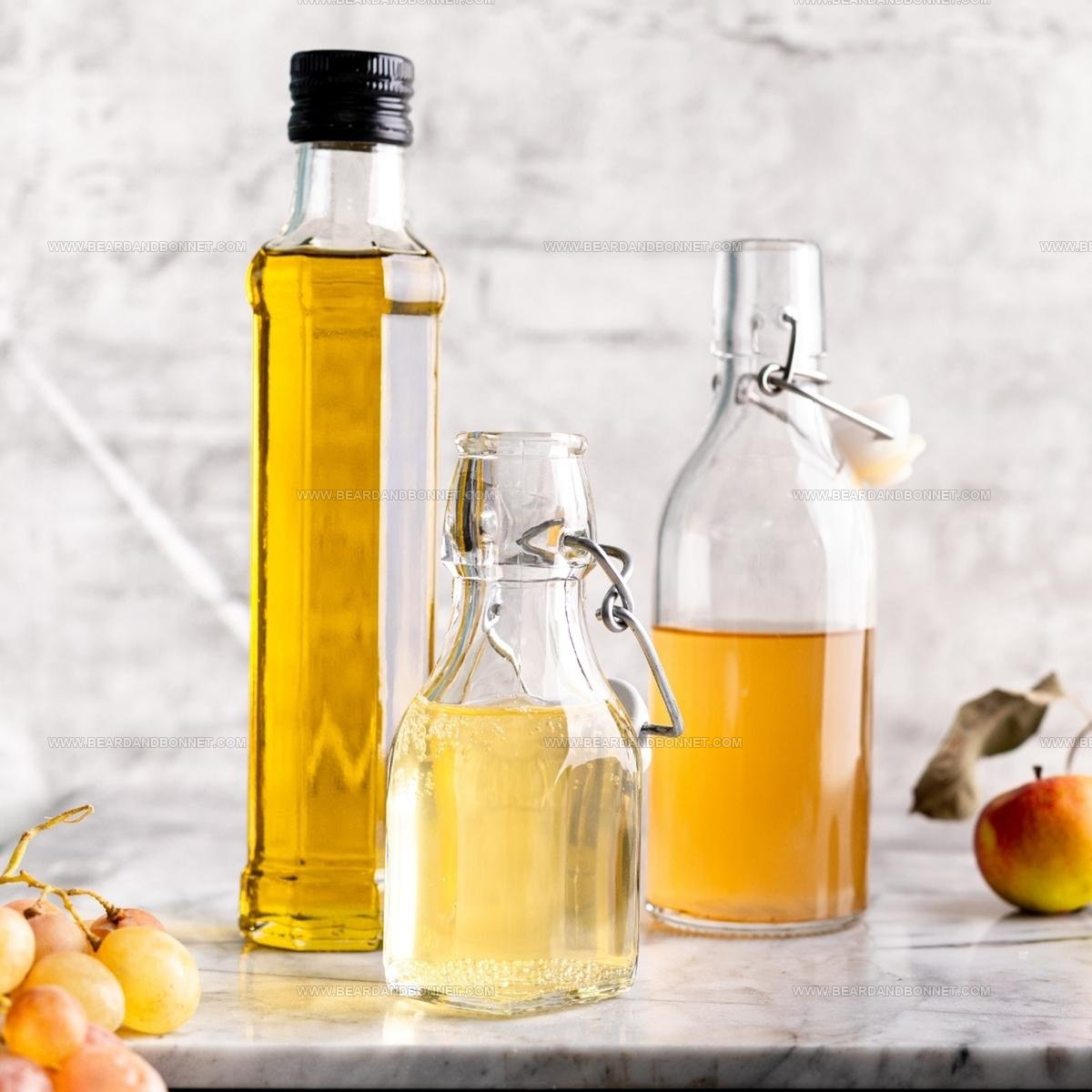
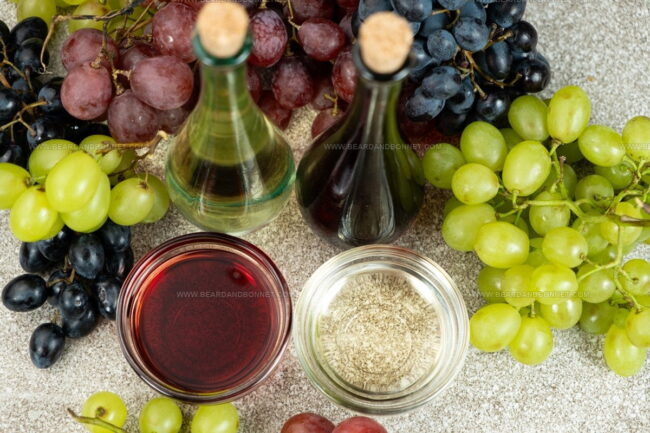
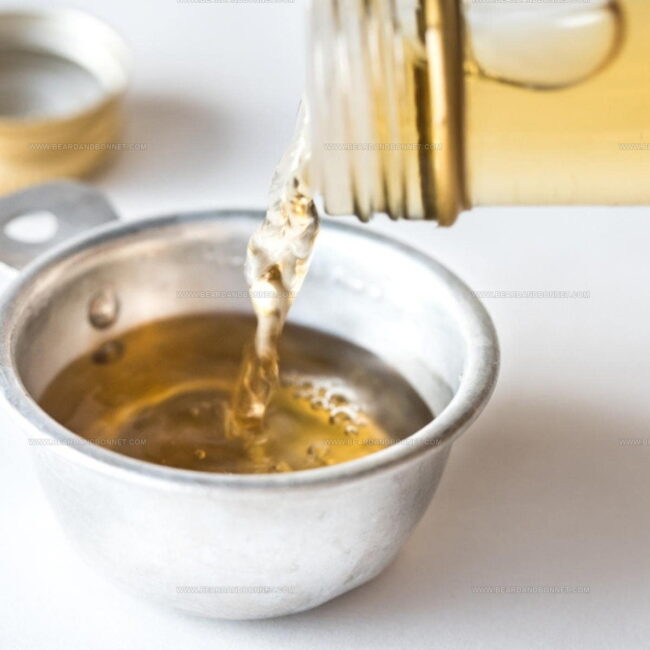
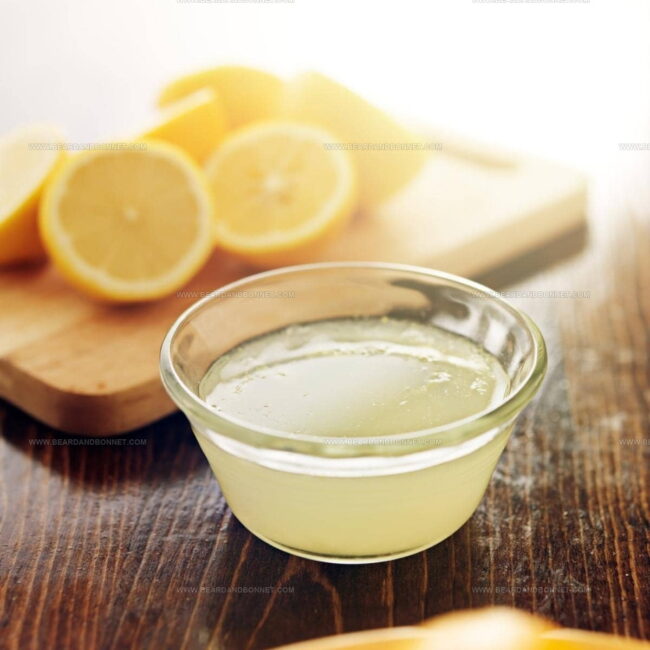
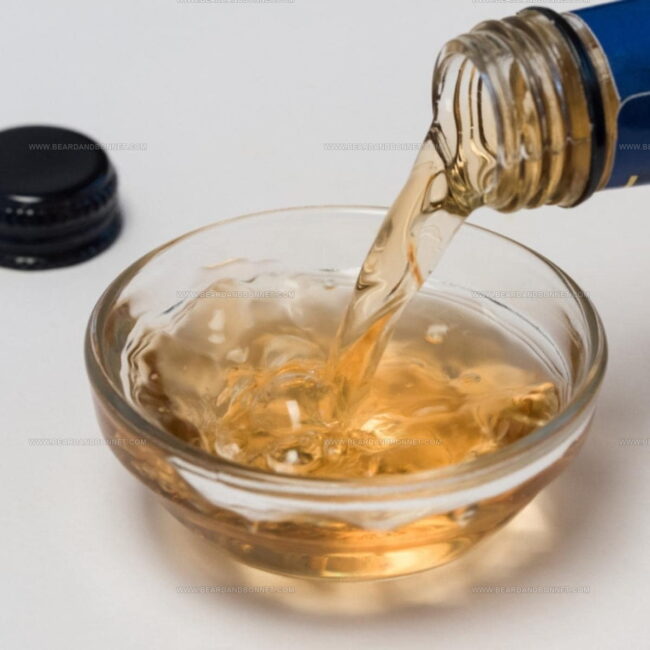
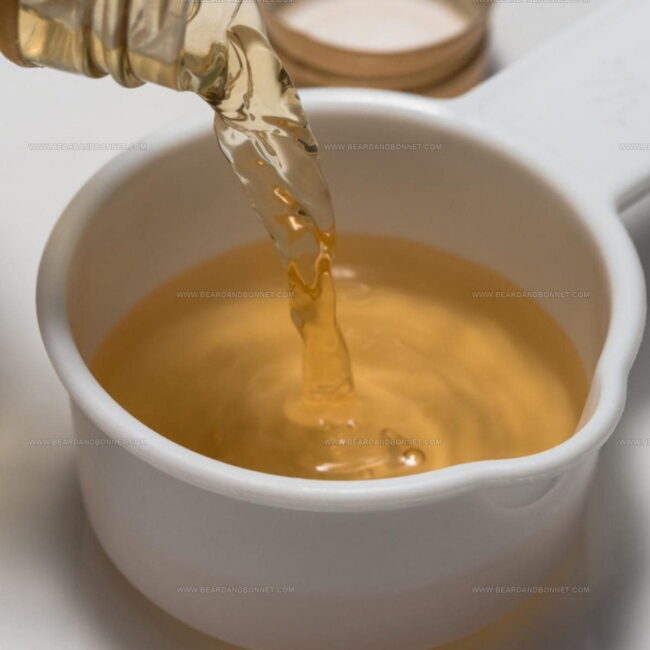
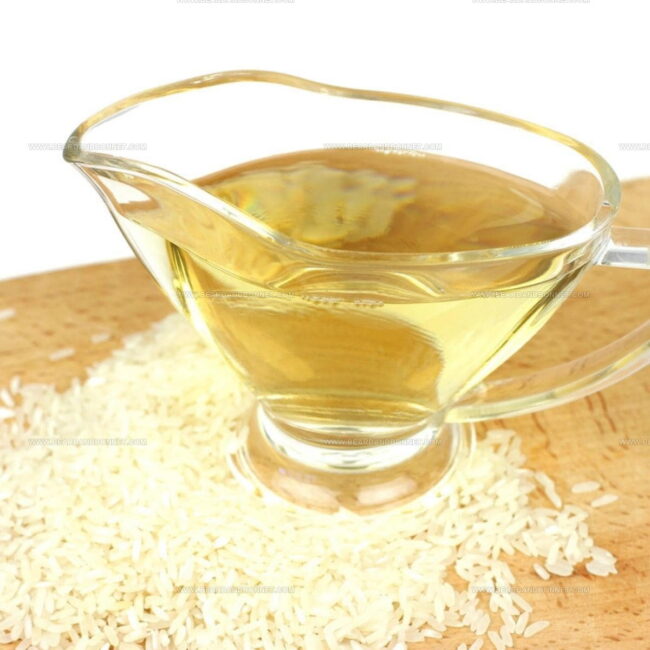
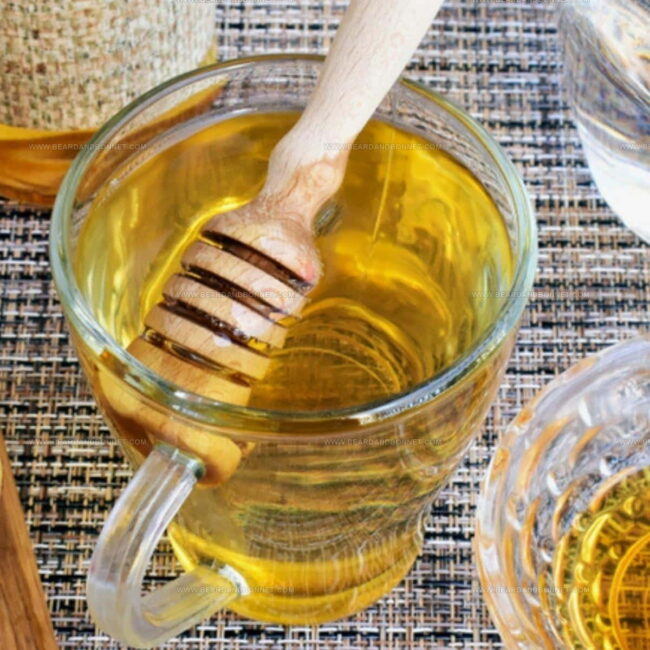
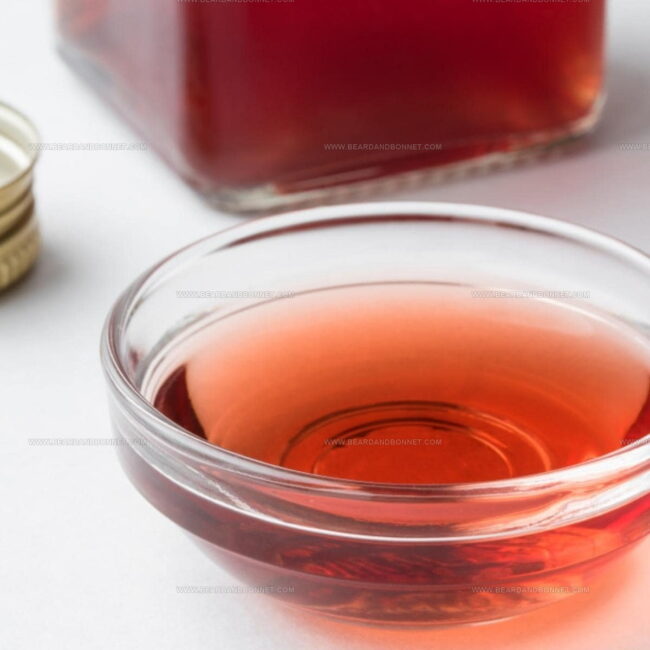
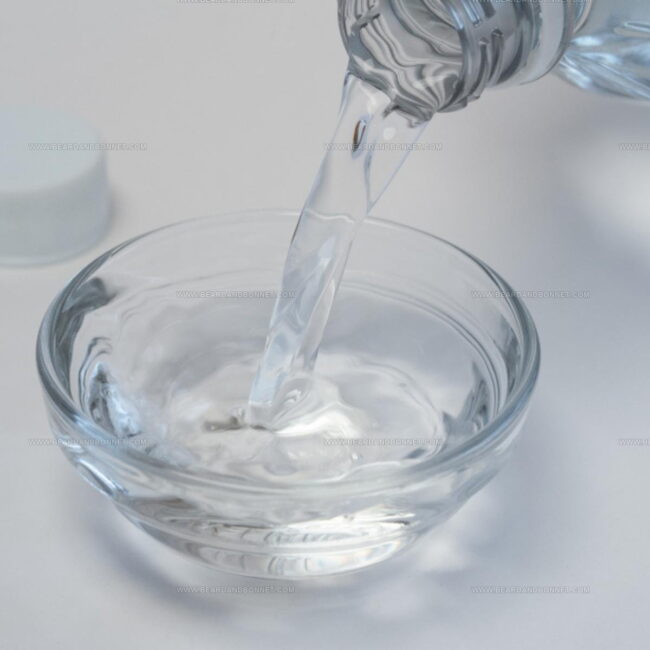
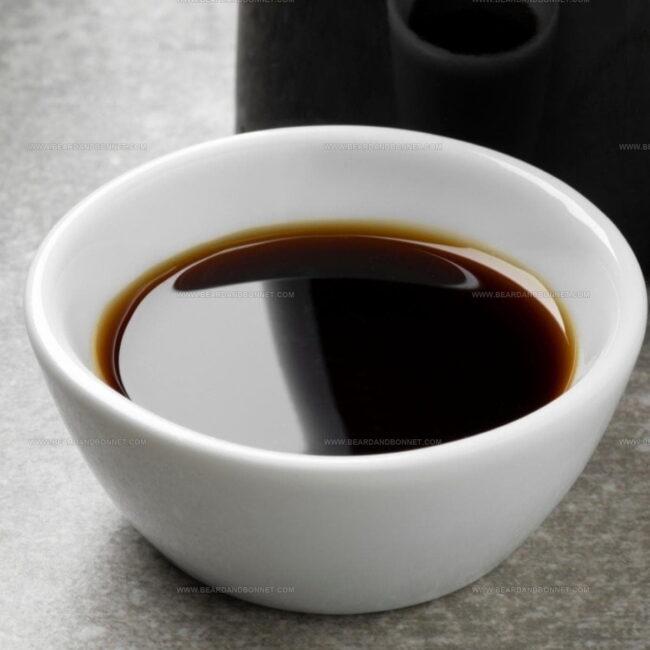
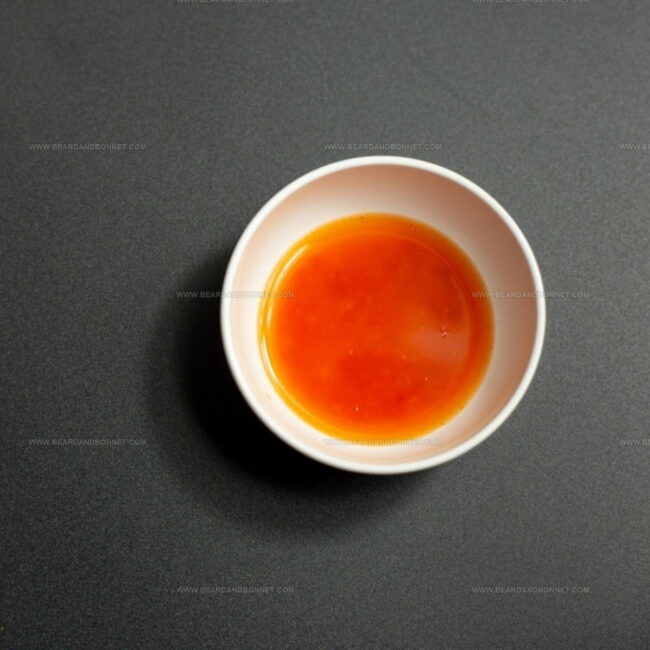
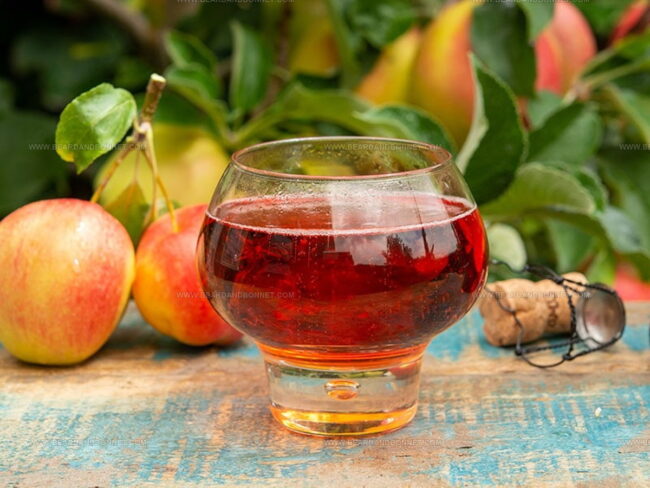
Jessica Martin
Recipe Developer & Food Writer
Expertise
Recipe Development, Food Styling and Photography, Seasonal and Local Ingredients, Vegetarian and Vegan Cuisine, Culinary Education
Education
Portland Community College
Oregon Culinary Institute
Jessica Martin is a talented food writer and recipe creator who specializes in seasonal cooking and approachable home baking.
Educated at Portland Community College with additional pastry training from Oregon Culinary Institute, Jessica’s culinary journey spans nearly a decade of creating and sharing flavorful recipes.
Her deep appreciation for local ingredients shapes each of her recipes, making them both accessible and inspiring. At Beard and Bonnet, Jessica uses her cheerful, down-to-earth writing to help readers effortlessly bring new tastes and creative dishes into their daily routines.